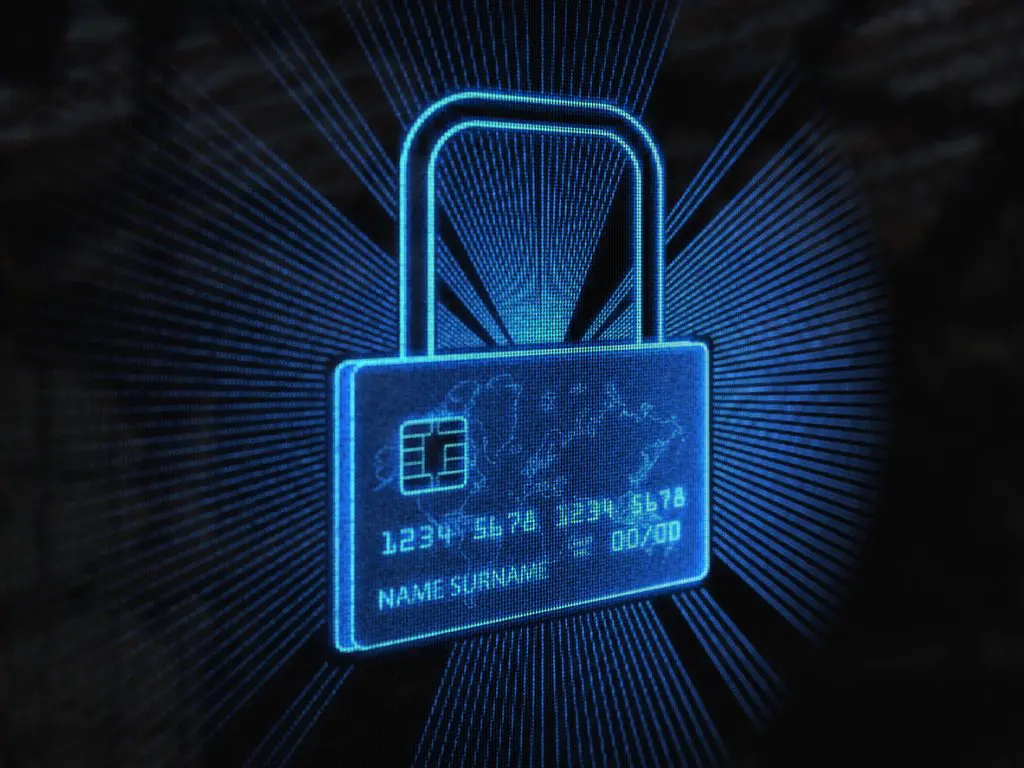In today’s dynamic financial landscape, credit cards play a crucial role in how we manage our day-to-day expenses, build creditworthiness, and access various financial benefits. Whether you’re a seasoned user or considering your first card, understanding the nuances of credit cards can significantly impact your financial well-being. This guide is designed to demystify the world of credit cards for US consumers, offering practical insights and considerations to help you make informed decisions.
A credit card is not just a convenient payment tool but also a gateway to numerous perks such as cash back, rewards points, and travel benefits. However, choosing the right credit card requires careful consideration of factors like interest rates, fees, rewards programs, and eligibility criteria based on your credit profile. By navigating these choices wisely, you can maximize benefits while minimizing costs, ensuring your financial choices align with your long-term goals. Whether you’re looking to build credit from scratch, consolidate debt, or enhance your purchasing power, this guide will equip you with the knowledge to navigate the credit card landscape effectively and responsibly.

Understanding Credit Cards
Credit cards are financial instruments that allow consumers to borrow money from a financial institution to make purchases, with the promise to repay the borrowed amount along with interest if the balance is not paid in full each month. They offer a convenient and widely accepted method of payment, both online and in-person, globally. Each credit card comes with a credit limit, which is the maximum amount you can borrow at any given time.
Credit cards typically charge interest on any outstanding balances (revolving credit) that are not paid off by the due date each month. The Annual Percentage Rate (APR) represents the annual cost of borrowing and can vary based on factors such as your creditworthiness and the type of transactions (purchases, cash advances). Additionally, credit cards may offer various benefits such as rewards points, cash back on purchases, travel perks, and insurance coverage, depending on the type of card you choose and the issuer’s terms. Understanding these fundamental aspects of credit cards is crucial for making informed decisions about which card best suits your financial needs and spending habits.
Types of Credit Cards
Choosing the right type of credit card depends on your spending habits, financial goals, and credit history. Evaluate each type’s benefits and consider how they align with your needs before applying.
Rewards Credit Cards:
Pros: Earn points or miles for every dollar spent, redeemable for travel, merchandise, or cash back.
Cons: Often come with higher interest rates and annual fees.
Example Cards: Chase Sapphire Preferred, American Express Gold Card.
Cash Back Credit Cards:
Pros: Earn a percentage cash back on purchases, which can accumulate over time.
Cons: May have limits on cash back categories and redemption options.
Example Cards: Discover it Cash Back, Citi Double Cash Card.
Travel Credit Cards:
Pros: Offer travel rewards like airline miles, hotel stays, and travel insurance.
Cons: Usually come with annual fees and higher APRs.
Example Cards: Capital One Venture Rewards, United Explorer Card.
Student Credit Cards:
Pros: Geared towards students with limited credit history, often with no annual fees and rewards for good grades.
Cons: Lower credit limits and higher interest rates compared to other cards.
Example Cards: Discover it Student Cash Back, Bank of America Travel Rewards for Students.
Secured Credit Cards:
Pros: Designed for individuals with poor or no credit history, requires a security deposit.
Cons: Typically have higher fees and lower credit limits.
Example Cards: Discover it Secured, Capital One Secured Mastercard.
Factors to Consider Before Choosing a Credit Card

Before selecting a credit card, it’s essential to evaluate several key factors to ensure it aligns with your financial goals and lifestyle. First and foremost, your credit score plays a crucial role in determining which cards you qualify for and the interest rates you’ll receive. Generally, higher credit scores lead to better offers with lower APRs and more favorable terms.
Credit Score and Eligibility:
Understand your credit score and check eligibility requirements for various cards. Higher credit scores typically qualify for better APRs and more rewards.
Interest Rates and APR:
Compare APRs, especially if you plan to carry a balance. Look for cards with introductory 0% APR offers on purchases or balance transfers.
Annual Fees:
Determine if the rewards and benefits justify paying an annual fee. Many cards offer no annual fee options, especially for basic rewards cards.
Rewards Programs:
Consider the type of rewards offered (cash back, points, miles) and how you can redeem them. Evaluate bonus categories and earning rates based on your spending habits.
Introductory Offers and Promotions:
Take advantage of introductory bonuses like cash back bonuses or bonus points for initial spending. Balance transfer offers with low or 0% APR can be beneficial for consolidating debt.
Additional Benefits:
Check for perks such as travel insurance, extended warranties, and purchase protections. Fraud protection and 24/7 customer service are essential for security and support.
How to Apply for a Credit Card
When applying for a credit card, start by checking your credit score to understand which cards you’re eligible for. Research and compare different cards based on factors like APR, fees, rewards, and benefits. Gather necessary documents such as proof of income and personal identification before filling out the application online or via mail. Be sure to provide accurate information and review the terms and conditions carefully to make an informed decision. Once approved, activate your card and set up online account management for easy monitoring and payments.
Check Your Credit Score:
Obtain a free credit report to assess your creditworthiness. Aim for a score that meets the minimum requirement of the card you’re interested in.
Research and Compare Cards:
Use online tools and resources to compare features, APRs, rewards, and fees. Choose a card that aligns with your spending habits and financial goals.
Pre-Qualify if Possible:
Many issuers offer pre-qualification checks without impacting your credit score. Pre-qualification can give you an idea of which cards you’re likely to be approved for.
Gather Required Documents:
Have personal information ready (Social Security number, income details, employment information). Some cards may require proof of income or residency.
Complete the Application:
Apply online through the issuer’s website or via mail if preferred. Fill out all sections accurately and truthfully to avoid delays or rejection.
Review Terms and Conditions:
Carefully read through the card’s terms, including APR, fees, rewards structure, and any introductory offers. Understand the card’s policies on late payments, balance transfers, and other key aspects.
Submit and Wait for Approval:
Submit your application and wait for a response from the issuer. Approval timelines vary but can range from instant approval to several weeks.
Activate Your Card:
Once approved, follow instructions to activate your card online or by phone. Set up online account management and payment preferences for convenience.
Tips for Approval
- Check Your Credit Score: Ensure your credit score meets the minimum requirements of the card you’re applying for. Aim for a score above 670 for better chances of approval.
- Improve Your Credit Profile: Pay down existing debts and resolve any outstanding issues on your credit report. Lowering your credit utilization ratio can boost your credit score.
- Apply for the Right Card: Choose a card that matches your credit profile and financial situation. Applying for cards you’re likely to qualify for increases your approval odds.
- Income Verification: Provide accurate income information. Card issuers consider your income to assess your ability to repay debts.
- Maintain Stability: A stable job and residence history can improve your application’s strength. Frequent job changes or recent moves might raise red flags.
- Avoid Multiple Applications: Submitting several credit card applications within a short period can lower your credit score and indicate financial stress.
- Review Credit Reports: Check for errors on your credit report and dispute any inaccuracies promptly. Correcting errors can positively impact your creditworthiness.
- Consider a Secured Card: If you have limited credit history or a low credit score, a secured credit card backed by a security deposit may increase your chances of approval.
- Follow Up: If your application is pending or denied, contact the issuer for clarification. Sometimes additional information or reconsideration may be possible.
Using Your Credit Card Responsibly
Using a credit card responsibly is essential for maintaining good financial health and maximizing its benefits. Start by creating a budget that outlines your monthly expenses and ensures you can comfortably cover your credit card payments. Always aim to pay your balance in full each month to avoid accruing interest charges. If carrying a balance is necessary, strive to keep it manageable and pay more than the minimum amount due whenever possible to reduce interest costs.
Monitoring your spending regularly through online banking or mobile apps helps you stay within budget and track your transactions for any discrepancies. Avoid overspending by only charging what you can afford to pay off promptly. Set up payment reminders or automatic payments to ensure bills are paid on time, as late payments can damage your credit score and incur costly fees.
Furthermore, take advantage of your credit card’s additional benefits, such as cash back rewards or travel perks, while being mindful of any fees associated with these benefits. Protect your card information and personal details from fraud by using secure websites for online purchases and reporting any suspicious activity to your issuer immediately. By using your credit card responsibly, you can build positive credit history, access financial flexibility, and enjoy the perks that come with responsible financial management.
Building and Maintaining Good Credit
Building and maintaining good credit is crucial for financial stability and future borrowing opportunities. Start by making timely payments on all your credit accounts, including credit cards, loans, and bills. Paying bills in full and on time demonstrates responsible financial behavior and positively impacts your credit score.
Keep your credit utilization low by using only a small portion of your available credit. Aim to use less than 30% of your credit limit to avoid appearing overextended to lenders. Avoid opening multiple new credit accounts at once, as this can lower your average account age and potentially impact your credit score negatively.
Regularly monitor your credit report from the major credit bureaus (Equifax, Experian, and TransUnion) to check for errors or fraudulent activity. Correct any inaccuracies promptly to maintain an accurate credit history. By establishing and maintaining good credit habits, you can improve your creditworthiness and access better financial opportunities in the future.
Managing Your Credit Card Debt
Managing credit card debt responsibly is essential to maintaining financial health. Start by keeping track of your spending and creating a budget to ensure you can pay off your balance each month. If you carry a balance, prioritize paying more than the minimum amount due to reduce interest charges over time.
Consider consolidating high-interest debt with a balance transfer to a card offering a lower or 0% introductory APR. However, be aware of transfer fees and the duration of the promotional period to make the most of this strategy. Avoid using credit cards for unnecessary purchases that could lead to accumulating debt beyond your means.
Regularly review your credit card statements to monitor your debt and spending habits. If you find yourself struggling to make payments, contact your card issuer to discuss options like payment plans or hardship programs. By managing your credit card debt responsibly, you can maintain control over your finances and work towards a debt-free future.
Avoiding Common Pitfalls (Late Payments, Overspending, etc.)
To maintain financial health while using a credit card, avoid common pitfalls such as late payments by setting up payment reminders or automatic payments. Overspending can be mitigated by creating a budget and sticking to it, ensuring you only charge what you can afford to pay off each month. Additionally, understanding your credit card’s terms and conditions, including APR, fees, and rewards structure, can help you make informed financial decisions and avoid unexpected charges. Regularly reviewing your statements for accuracy and monitoring your spending habits will also contribute to responsible credit card usage.
- Set Up Payment Reminders: Utilize alerts or automatic payments to ensure bills are paid on time, preventing late fees and negative impacts on your credit score.
- Monitor Your Spending: Create a budget and track your expenses to avoid overspending. Only charge what you can afford to pay off each month to keep your balances manageable.
- Understand Your Terms and Conditions: Familiarize yourself with your credit card’s APR, fees, and rewards structure. Knowing these details helps you avoid unexpected charges and maximize benefits.
- Avoid Cash Advances: Cash advances often come with high fees and immediate interest charges. Use them sparingly and only in emergencies.
- Keep Credit Utilization Low: Aim to use less than 30% of your available credit to maintain a healthy credit utilization ratio, which positively impacts your credit score.
- Regularly Check Your Statements: Review your monthly statements for any unauthorized charges or errors. Report any discrepancies to your card issuer promptly.
- Be Mindful of Introductory Offers: Understand the terms of any introductory offers, such as 0% APR periods or bonus rewards, and plan your spending and payments accordingly.
Credit Card Security

Ensuring the security of your credit card is essential to protect against fraud and unauthorized transactions. Start by keeping your card information safe and secure. Only provide your credit card details on trusted websites with secure connections (look for “https” in the URL and a padlock icon). Avoid sharing your card information over email or phone unless you initiated the contact and are certain of the recipient’s legitimacy.
Regularly monitor your credit card statements and transaction history online for any unauthorized charges. Report any suspicious activity to your card issuer immediately. Many issuers offer fraud protection measures that can help mitigate losses if your card is compromised. Familiarize yourself with your card issuer’s policies on fraud liability to understand your rights and responsibilities in case of fraud.
Take advantage of security features offered by your card issuer, such as virtual card numbers for online purchases or mobile app alerts for transaction notifications. Set up strong passwords and enable multi-factor authentication on your online banking and credit card accounts for added security. By staying vigilant and proactive about credit card security measures, you can minimize risks and enjoy peace of mind when using your credit card for purchases online and in-person.
Fraud Protection Measures
Credit card issuers provide robust fraud protection measures to safeguard your accounts. These include monitoring transactions for unusual activity and promptly notifying you of suspicious charges via email or text alerts. In case of unauthorized transactions, most issuers offer zero liability protection, ensuring you aren’t held responsible for fraudulent charges. It’s essential to promptly report lost or stolen cards to prevent unauthorized use and request a replacement card to maintain security.
Steps to Protect Your Information
By following these steps, you can protect your credit card information and minimize the risk of fraud or identity theft.
- Keep Your Card Information Secure: Store your credit cards in a safe place and avoid sharing your card details over email, phone, or unsecured websites.
- Monitor Your Statements Regularly: Review your monthly credit card statements for unauthorized transactions or unfamiliar charges. Report any discrepancies to your card issuer immediately.
- Use Strong Passwords: Create strong, unique passwords for your online banking and credit card accounts. Avoid using easily guessable information like birthdays or common words.
- Enable Two-Factor Authentication: Enable two-factor authentication (2FA) for an extra layer of security when accessing your online accounts.
- Be Cautious Online: Only enter your credit card information on secure websites (look for “https” and a padlock symbol in the URL bar). Avoid using public Wi-Fi networks for financial transactions.
- Set Up Transaction Alerts: Sign up for transaction alerts via email or text from your card issuer to monitor account activity and receive immediate notifications of any suspicious transactions.
- Report Lost or Stolen Cards Immediately: Contact your card issuer promptly if your credit card is lost or stolen. Most issuers provide 24/7 customer service for reporting and replacing lost or stolen cards.
Conclusion
Choosing and using a credit card wisely can significantly enhance your financial flexibility and provide valuable benefits if managed responsibly. As you navigate the process of selecting a credit card, consider your financial goals, spending habits, and creditworthiness to find the card that best suits your needs. Whether you opt for a rewards card, cash back card, or a card tailored for students or travelers, understanding the terms and conditions, including APR, fees, and rewards programs, is crucial for making informed decisions.
Remember, your credit card is a tool that, when used wisely, can help you achieve your financial goals and provide peace of mind in your financial journey.



